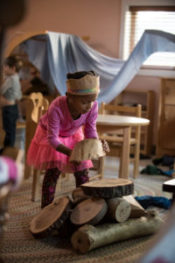 Full-Time Teacher Education
Full-Time Teacher Education Quality Education in the Heartland
Quality Education in the Heartland Summer Programs - Culminating Class Trips
Summer Programs - Culminating Class Trips Everything a Teacher Needs
Everything a Teacher Needs Train to Teach in Seattle
Train to Teach in Seattle The Journey is Everything
The Journey is Everything Bay Area Teacher Training
Bay Area Teacher Training Bringing Love to Learning for a Lifetime
Bringing Love to Learning for a Lifetime Space speaks. Its language is movement.
Space speaks. Its language is movement. Waldorf-inspired Homeschool Curriculum
Waldorf-inspired Homeschool Curriculum Transforming Voices Worldwide
Transforming Voices Worldwide Caring for All Stages of Life
Caring for All Stages of Life Jamie York Books, Resources, Workshops
Jamie York Books, Resources, Workshops Great books for Waldorf Teachers & Families
Great books for Waldorf Teachers & Families Immersive Academics and Arts
Immersive Academics and Arts Middle School Science With Roberto Trostli
Middle School Science With Roberto Trostli
 Roadmap to Literacy Books & Courses
Roadmap to Literacy Books & Courses Flexible preparation for your new grade
Flexible preparation for your new grade Waldorf Training in Australia
Waldorf Training in Australia Apply Today: New Cohort Starts Nov. 2025
Apply Today: New Cohort Starts Nov. 2025 ~ Ensoul Your World With Color ~
~ Ensoul Your World With Color ~ Association for a Healing Education
Association for a Healing Education
Would you like to become a sponsor?
Waldorf News

What Happened to a Blade of Grass: An Advent Story by Eugene Schwartz
November 27, 2017
It was in mid-November that a challenging bullying issue arose in my fourth grade class. There were no physical threats, but one boy with an especially sharp tongue was hurling insults at a sensitive and insecure classmate whenever he had the chance. Loki’s vituperative downfall would not be part of our story content for several more months, and I had to take some measures immediately. Having been asked to speak at the Green Meadow Waldorf School’s Advent Assembly, I created this “pedagogical story” for the school, for my class, and especially for the bully and his victim. There are “experts” who claim that telling pedagogical stories is no longer an effective antidote to social problems, but I beg to differ. Try this story for yourself. More »

Is technology in schools making our kids smarter?
November 20, 2017
"Show me one study that shows a Chromebook in first grade, second grade, or third grade, leads to better educational outcomes in middle school or high school. There isn't any," says Dr. Kardaras. "I would think there are some benefits at the older ages. Kindergarten through elementary school I really see absolutely no benefit and actually quite a bit of clinical neurological damage.” "We know that neurologically there's been over 15 brain imaging studies that show that the frontal cortex, which is the executive functioning, actually atrophies and shrinks with exposure to screens in a similar way that it does with chronic substance addiction,” Dr. Kardaras continues. More »

'Our minds can be hijacked': the tech insiders who fear a smartphone dystopia
November 13, 2017
“One reason I think it is particularly important for us to talk about this now is that we may be the last generation that can remember life before,” Rosenstein says. It may or may not be relevant that Rosenstein, Pearlman and most of the tech insiders questioning today’s attention economy are in their 30s, members of the last generation that can remember a world in which telephones were plugged into walls. It is revealing that many of these younger technologists are weaning themselves off their own products, sending their children to elite Silicon Valley schools where iPhones, iPads and even laptops are banned. They appear to be abiding by a Biggie Smalls lyric from their own youth about the perils of dealing crack cocaine: never get high on your own supply. More »

Four Unique Aspects of a Waldorf Kindergarten
November 6, 2017
Why does it feel so different, so special, in a Waldorf Kindergarten? There is a peaceful quiet under the hum of activity and focus, the teachers speak and sing softly and the children move about the room with a comfortable confidence at any given moment. There are many things that contribute to this unique setting, including the natural classroom design, the smell of fresh bread or soup, or the way the teachers move about the room doing purposeful work. There is also a deeper level of social, emotional and academic learning in the Waldorf Kindergarten that is a pervasive undercurrent in the daily rhythm of our early childhood classrooms. More »

'Western society is chronically sleep deprived': the importance of the body's clock
October 23, 2017
The cycle of day and night on our planet is age-old and inescapable, so the idea of an internal body clock might not sound that radical. In science, though, asking the questions “why?” and “how?” about the most day-to-day occurrences can require the greatest leaps of ingenuity and produce the most interesting answers. This was the case for three American biologists, Jeffrey Hall, Michael Rosbash and Michael Young, who earlier this week were awarded the Nobel in medicine or physiology, for their discovery of the master genes controlling the body’s circadian rhythms. The first hints of an internal clock came as early as the 18th century when the French scientist Jean-Jacques d’Ortous de Mairan noticed that plants kept at a steady temperature in a dark cupboard unexpectedly maintained their daily rhythm of opening and closing their leaves. However, De Mairan himself concluded this was because they could “sense the sun without ever seeing it”. More »
 Recent Jobs
Recent Jobs
View more jobs »
 Newsletter Archive
Newsletter Archive
 Join the Mailing List!
Join the Mailing List!
Stay Connected…
Each week receive the Waldorf News Weekly Update, full of news, events, and more. Keep abreast of what's happening with Waldorf education.
 RSS Feeds
RSS Feeds